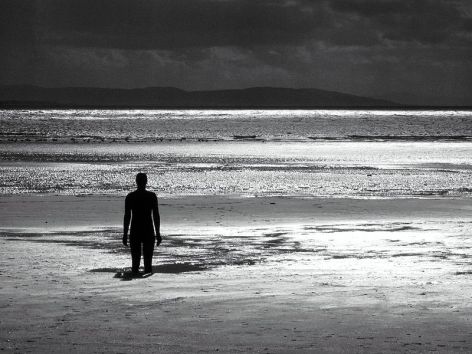
I wrote this for Times Higher Education about the academic on the beach.
You don’t really need a guide to the British beach, do you? You have been coming to the seaside all your life. Everything—the coin-slot telescopes, the bucket-and-spade sets, the coloured windmills on sticks—is the same. That singular smell, a sweet bouquet of ozone, salt and seaweed, opens up a wormhole back to childhood.
But did it ever occur to you that the beach is also a training ground for scholars, an outdoor library-cum-laboratory? In his famous “two cultures” lecture, C.P. Snow decried the gulf of mutual incomprehension between the sciences and humanities. He should have spent more time on the beach. For this is where human culture, nature and dead matter meet, where you learn to be interdisciplinary. And as you keep returning to the beach as the years go by, you make your way through the disciplines.
First you are a scientist, albeit a clueless eight-year-old one. On every trip to the beach you carry your copy of I Spy at the Seaside. The number of points you score depends on the rarity of what you spot: five for a lugworm’s coiled casting, ten for a razor shell, thirty for a gooseneck barnacle. For even on holiday you are a little high achiever, collecting ticks, marks and gold stars—a perfect apprenticeship for the endless measurement and self-surveillance of academia, it turns out.
A sand grain is your first lesson in non-human scale: infinitesimal in the singular, immeasurably vast in the plural. The horizon over which the sea disappears feels like another kind of infinity, until your dad disappoints you by telling you that it is only three miles away. The rock pools that you study with your shrimping net are a tutorial in biodiversity, life’s gift for enduring and multiplying in uncongenial places. In the sea, as you scream with delight at the oncoming surf, you are a trainee oceanographer. You have an inkling that those weird things, waves, are not things at all but processes: not water so much as energy using water as a medium.
Scientists recently worked out the perfect type of sand for sandcastles. The grains have to be fine-to-medium to cohere, irregular in size to interlock, and wet enough to stick together: ideally, eight-parts sand to one-part water. As an eight-year-old apprentice engineer, you may not know that precise formula. But you do know which type of sand will neither crumble from dryness nor collapse from sogginess. And you know just the right dampness of grain so that your castle turrets, moulded inside the indented base of the bucket, stay upright.
The years pass. You are older now, bored with sand and waves. You have turned into a social scientist. You begin to see the beach as a frontier—between the wild and the domestic, between anarchy and social order. For here the riders of sand yachts and kite buggies have to share space with families playing rounders and sunbathers snoozing on towels, in states of proximity and undress they would never countenance in their normal lives. The beach is a self-policing community, where social rules and hierarchies are put on hold—a great site for sociological fieldwork.
Nowadays, though, the beach has brought you back to your true home: the humanities. “Here I am, before the sea; it is true it bears no message,” wrote Roland Barthes in Mythologies. “But on the beach, what material for semiology!” Now you wander, Monsieur Hulot-like, among the beach-dwellers, all of them performing “fun”, with their picnics and games and self-mockery. You come across many versions of the parents in that Philip Larkin poem, all of them “clumsily undressed” and teaching their children how to live by “a sort of clowning”. And you realise that this fragile search for meaning, this grabbing at happiness on the wing, is all we have, all that separates us from nothingness. Without us meaning-making animals to notice it, the beach is just liquid, sediment and foam.
The beach now seems to you like an accelerated demonstration of the impermanence of all human culture. At the end of each day on the beach, everything—deflated beach balls, damp swimming trunks, uneaten sausage rolls—must be packed away. Sandcastles are stamped on before the sea devours them. Names writ in sand with a stick are erased. The crisp footprints of children, running in joyful circles, vanish.
At last you tire of parsing everything for meaning. You are on holiday, for heaven’s sake. Life is too short to waste time explaining it all. As Shakespeare wrote—although somehow it’s hard to picture him at the seaside—“like as the waves make towards the pebbled shore, / So do our minutes hasten to their end.” Time to switch off your too-busy brain. And so you stand, as mute and unthinking as one of Anthony Gormley’s iron men on Crosby beach, watching the sun sink below the sea as the waves break on the sand.
Photograph: Ian McAllister, 2008 (Wikimedia Commons)
